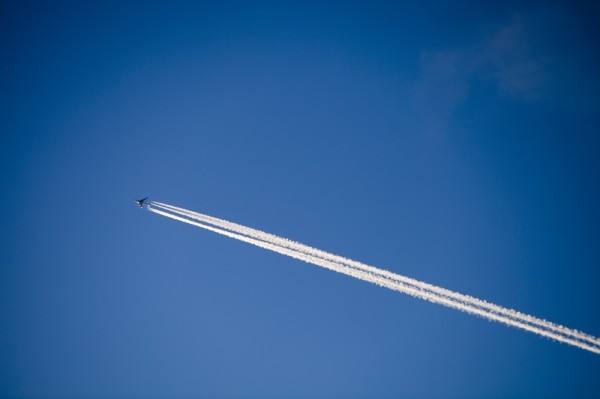Time to seize opportunity to slash carbon emissions from global aviation
Governments charged with developing a global plan to reduce carbon pollution from the airline industry need to seize a historic opportunity to slash those emissions coming up in the next few weeks, according to a group of environmental organizations who rallied this morning in Montreal.
WWF, Équiterre, Association québécoise de lutte à la pollution atmosphérique (AQLPA) and the David Suzuki Foundation and their supporters are calling on delegates to the Montreal-based International Civil Aviation Organization (ICAO) to agree on a global approach that requires airlines to ratchet down emissions of greenhouse gases. Carbon emissions from aviation contribute nearly five percent of the global warming effect our planet experiences and is the fastest growing source of greenhouse gas emissions in the world.

“With skyrocketing carbon emissions from aviation continuing to climb, there’s an immense amount of a pressure on ICAO delegates to agree upon a bold solution in the next 30 days,” said WWF Quebec Director Marie-Claude Lemieux. “Canada and the U.S. must take a leadership role within ICAO at this meeting and deliver a global solution to slash the fastest growing contributor to our planet’s global warming crisis.”
“ICAO has been working on a global emissions reduction plan for 15 years and has not yet been able to rally its member nations around a solution to this rapidly growing problem,” said Équiterre’s Steven Guilbeault. “Right now, however, ICAO delegates have the opportunity to deliver an ambitious plan that that sends a clear signal to the aviation industry that it needs to accelerate efforts to reduce emissions.”
“Canada should advocate for — or even propose — an ambitious global market-based approach with an aggressive implementation timeline at the upcoming meeting,” said David Suzuki Foundation’s Director Karel Mayrand. “Canada should stand up and lead, rather than simply following along with U.S. positions on climate change as it has done in recent years.”
“U.S. representatives to ICAO are pushing the weakest of policy options that would only cover the portions of flights within countries’ airspace and would delay implementation of pollution reductions,” said Keya Chatterjee, WWF climate and sustainability expert. “Not only does their current stance highlight the lack of U.S. commitment to a global solution, it also provides cover to other nations seeking to delay progress reducing emissions.”

Cutting aviation pollution is a big part of what’s needed to curb global climate change. If aviation were a country, it would be the 7th largest contributor to climate change on the planet. ICAO experts estimate that, if unchecked, emissions will increase by 70 percent in the next 7 years and by between 300-700 percent by 2050. This astronomical increase could lead to a very different planet than the one know today.
Movement toward a final plan at ICAO’s May-June Council meeting is crucial if the organization wants to adopt a strong plan by year’s end, before a regionalized approach takes effect in the European Union.
At Tuesday’s rally, activists from WWF, Équiterre, AQLPA, and David Suzuki Foundation urged delegates to push for the strongest agreement possible, one that creates a global market-based mechanism that sets a price for carbon pollution and funds projects across the globe to assist developing nations address the challenges climate change poses.
“With climate change fueling warmer temperatures and increasing extreme weather events like record floods, droughts, blizzards and hurricanes, reducing carbon emissions from aviation is critical,” said AQLPA’s Louise Levesque. “We cannot allow the politics of delay to stand in the way of cleaning up our skies.”
